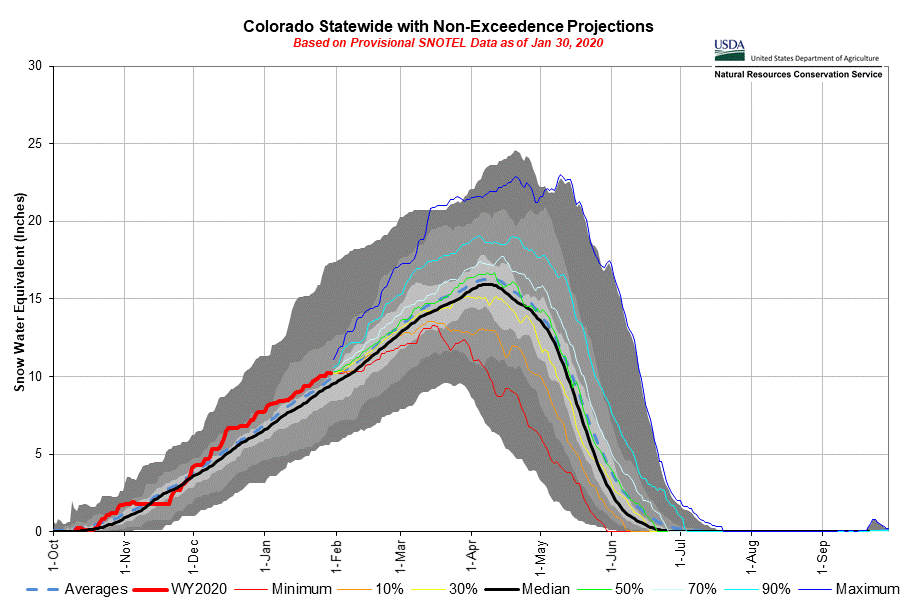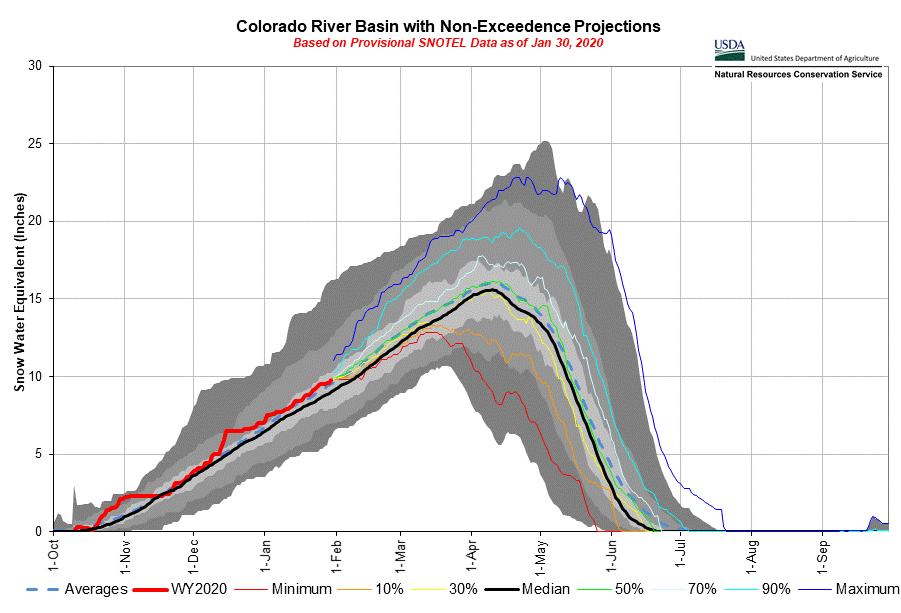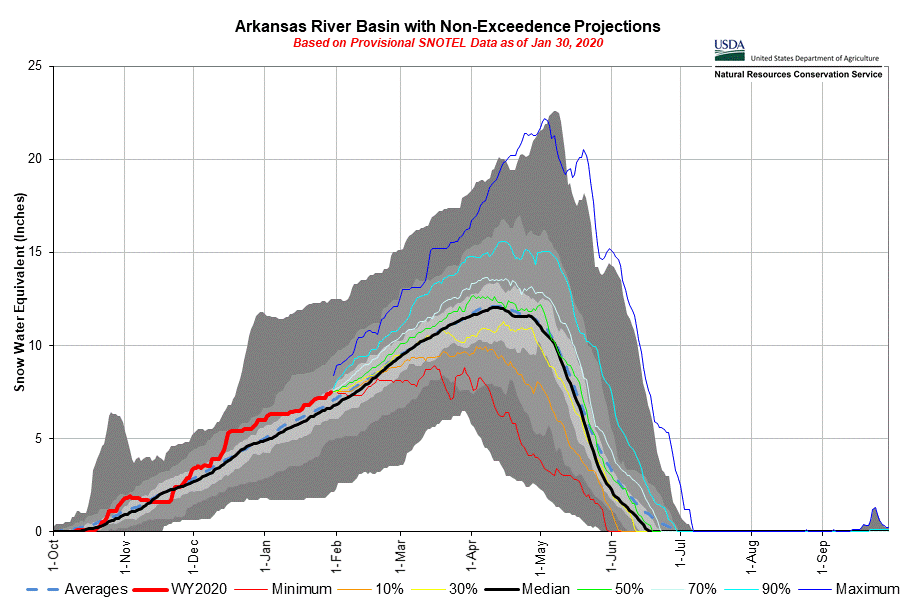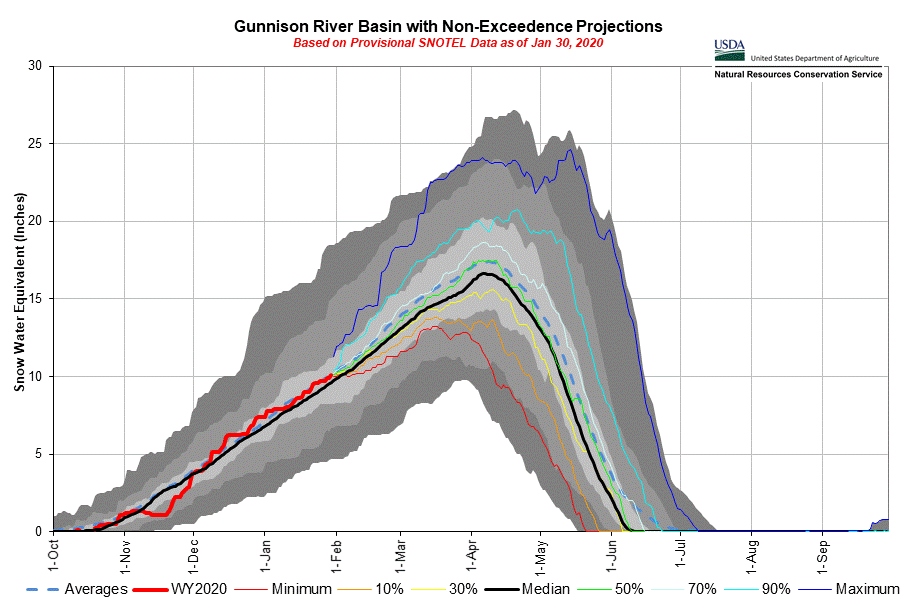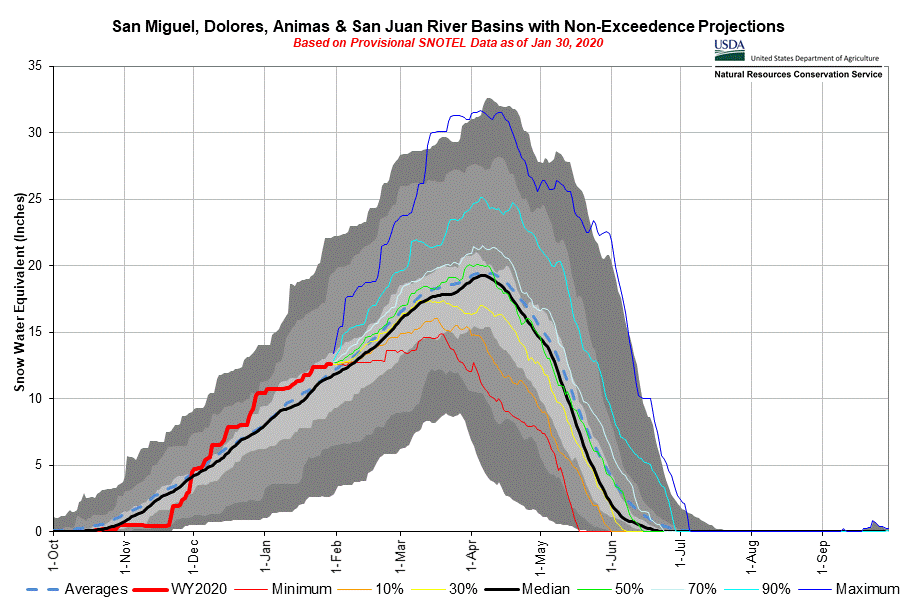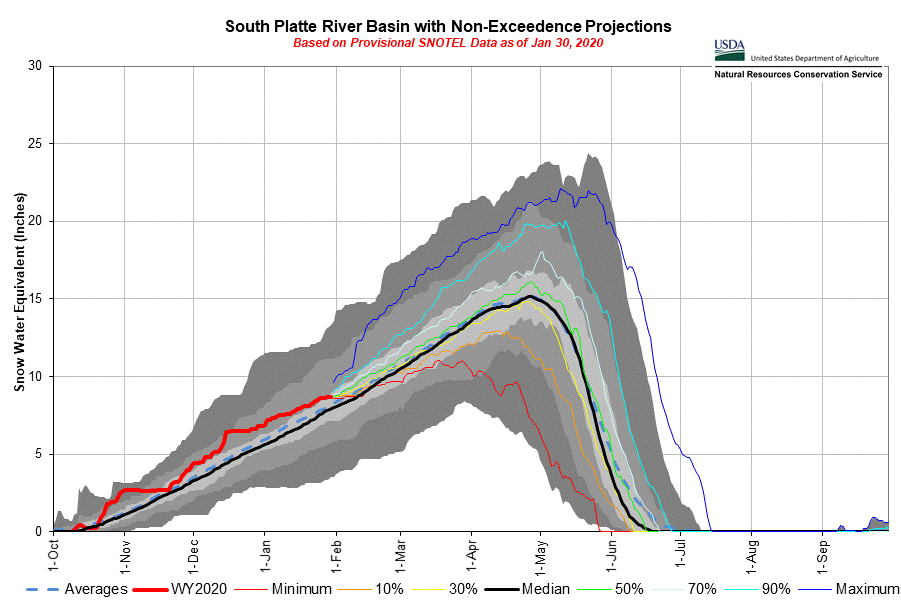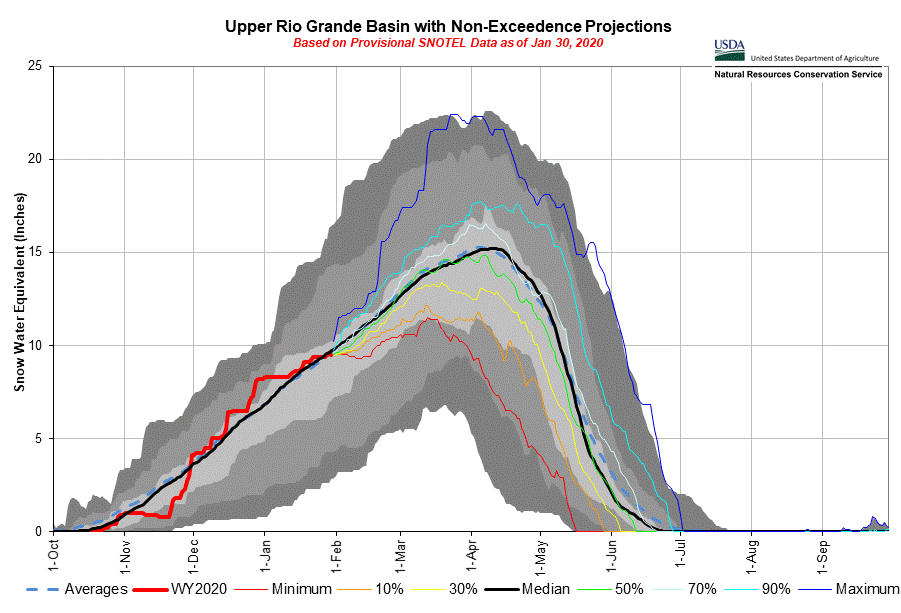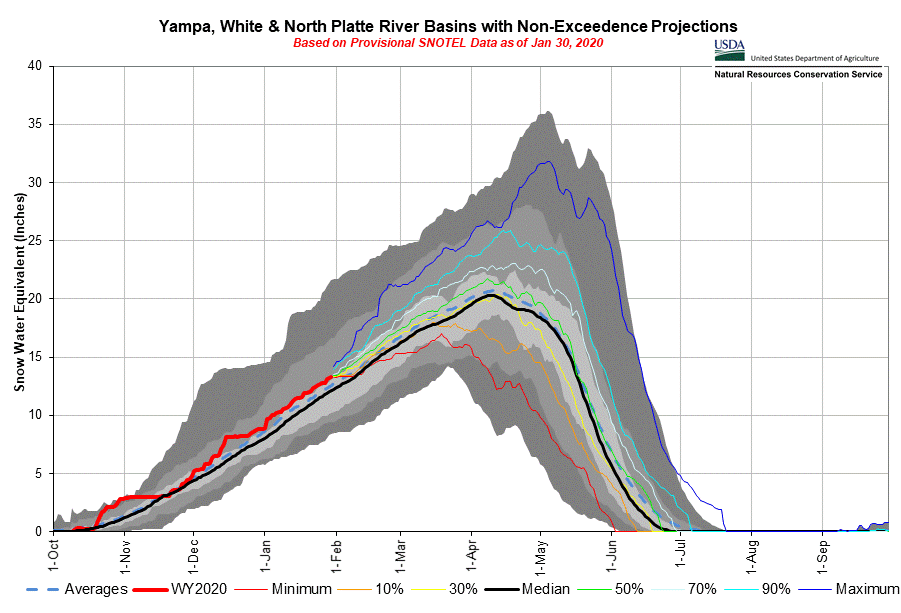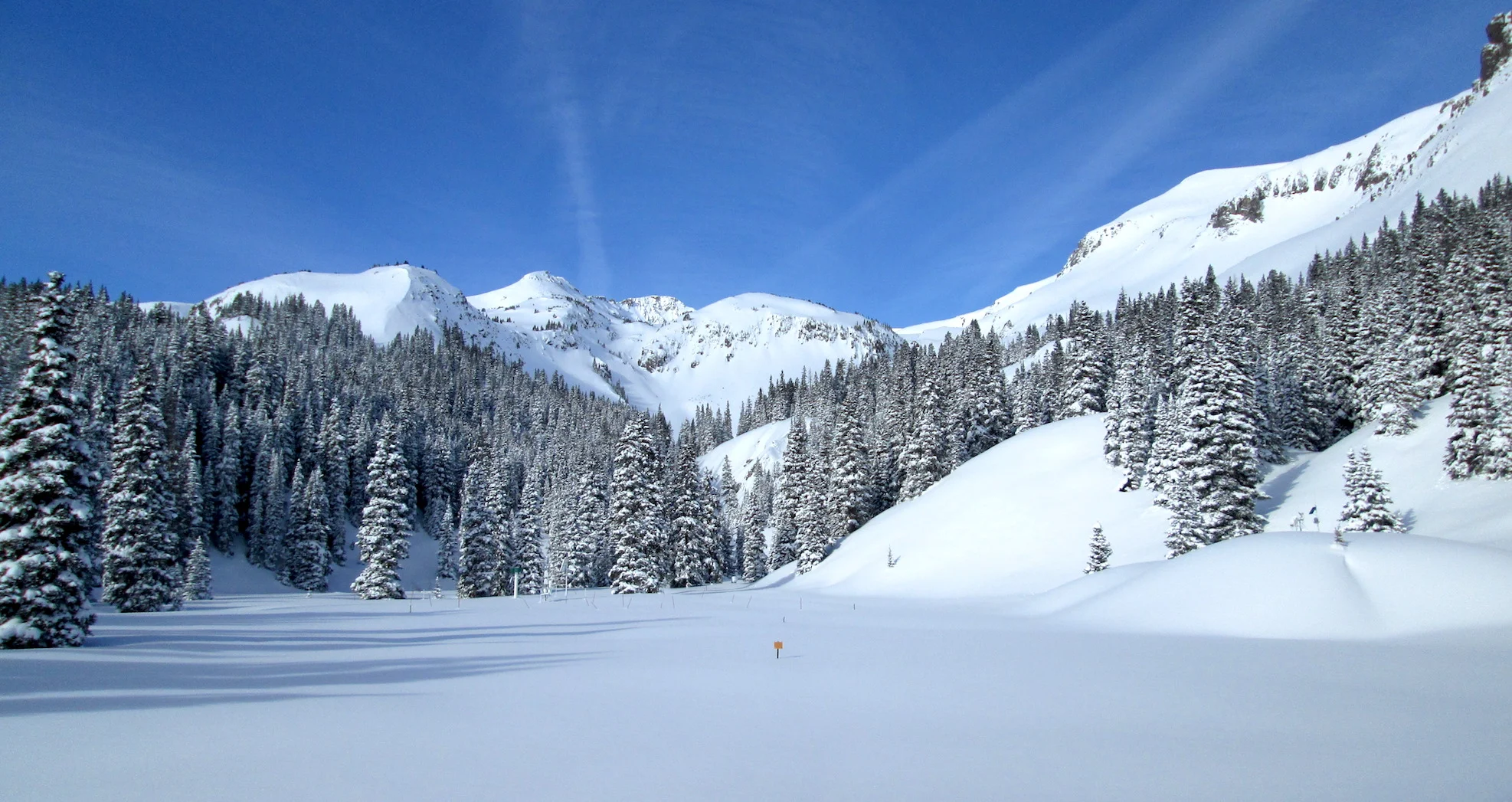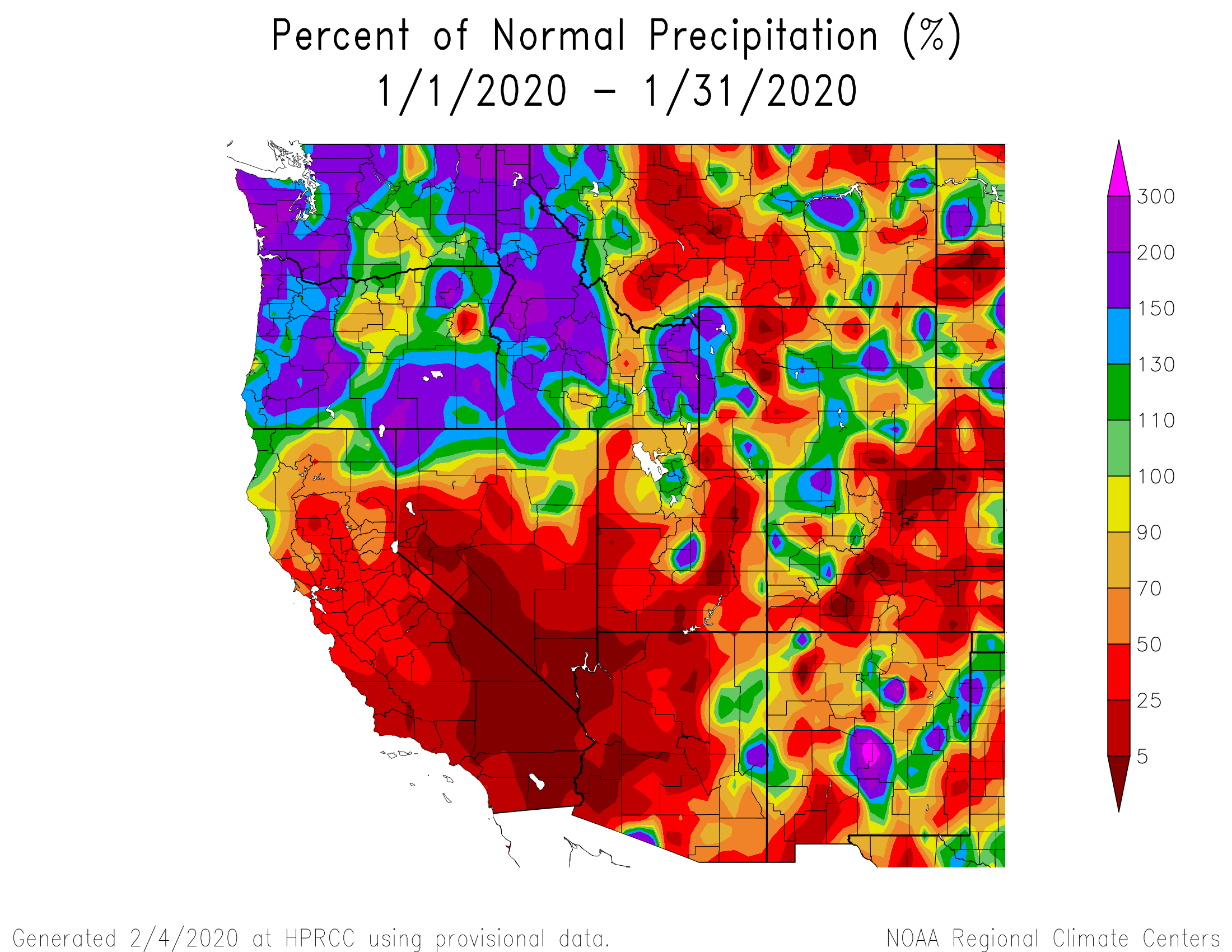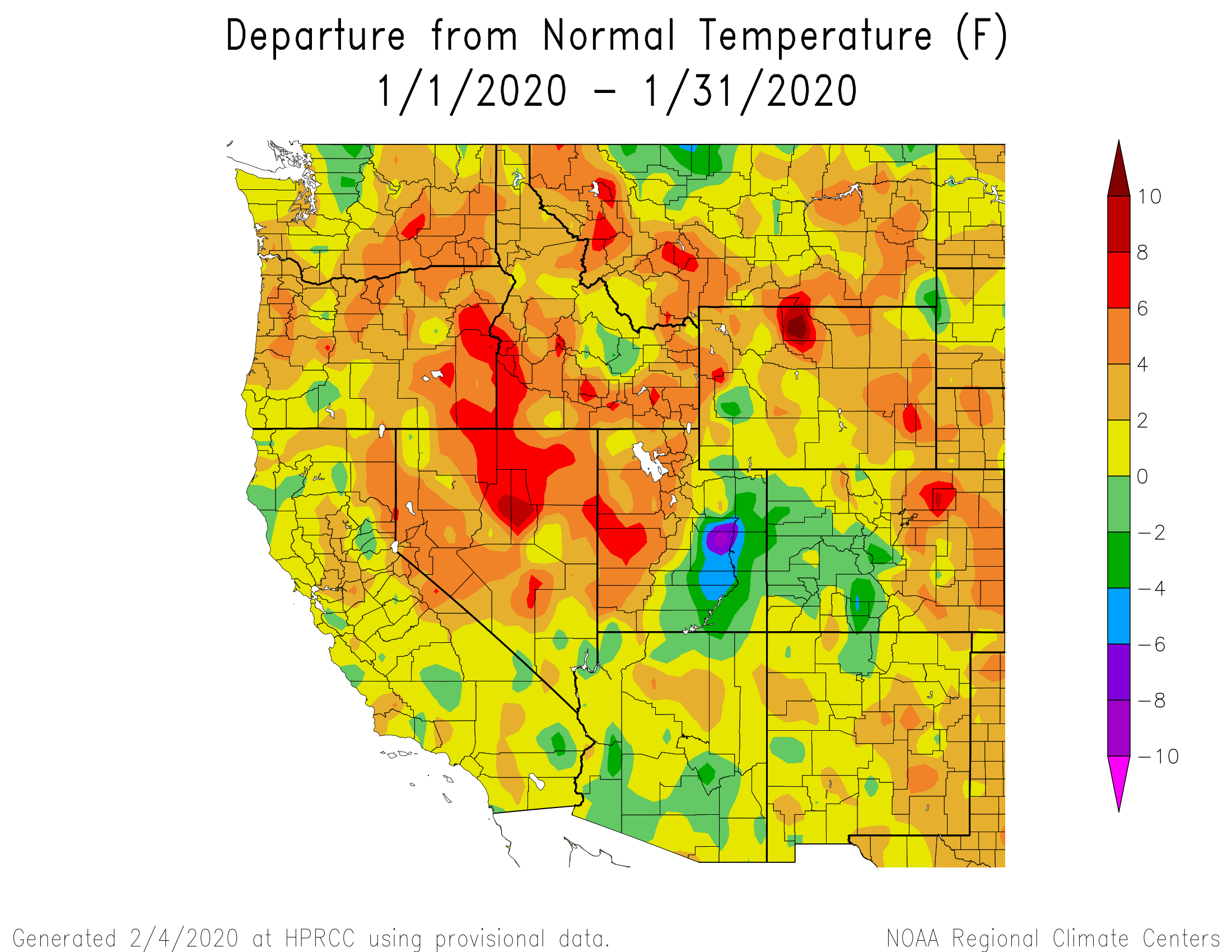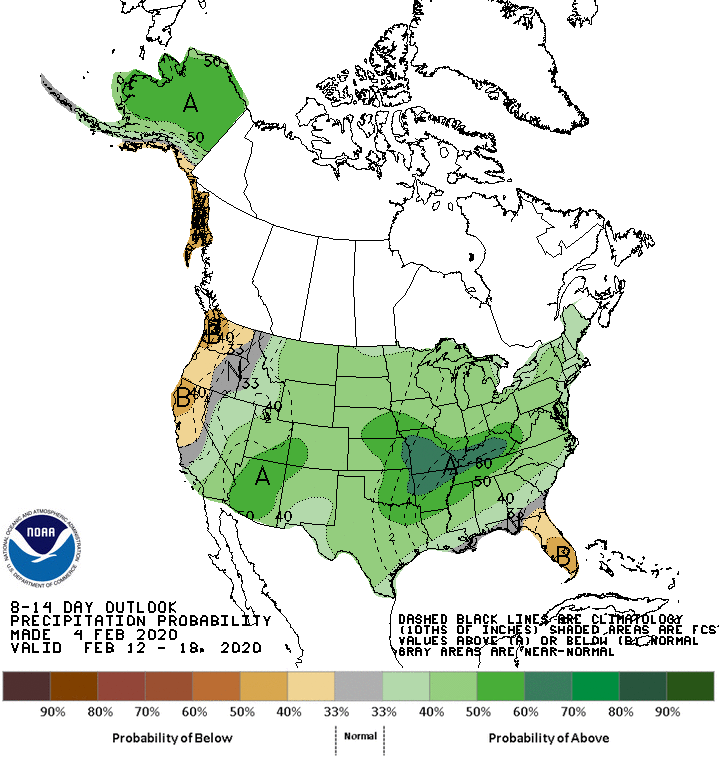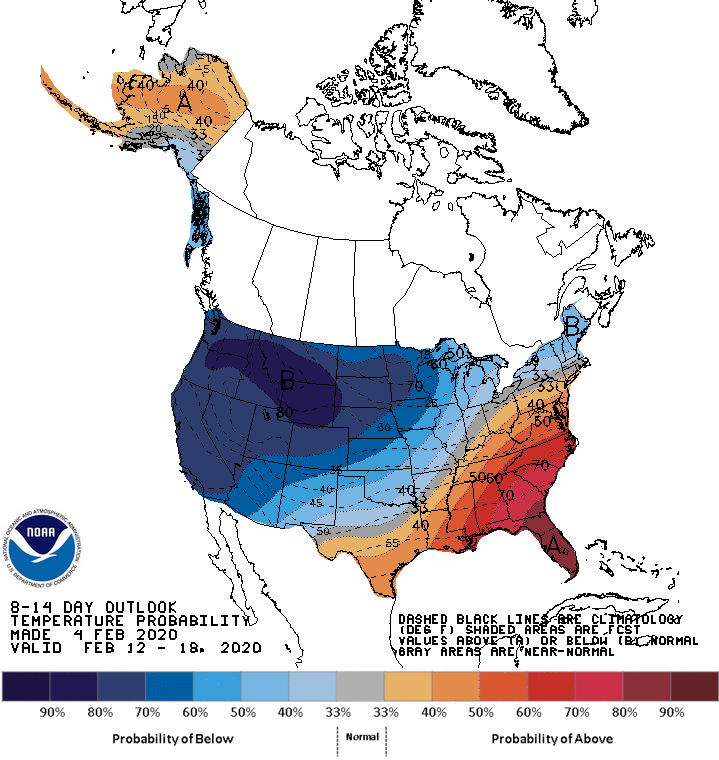February 5, 2020: Weather and Snow Summary, NEW Assistant, Alamosa Radar Video
Greetings from Silverton,
Even though we received about our normal number of storms this past January, it was still pretty dry (see precipitation map below), but then too January tends to be dry. A few of the January storms delivered the minimal amount of precipitation. Even this last system that covered most of Colorado from Feb 3-4 did not meet the requisite threshold for a storm (8mm vs 12mm minimum) in Senator Beck. You wouldn’t have thought so if you were in the San Juan Mountains a couple days ago, it was blizzard conditions for most of a day. But then it is hard to capture snow in the precipitation gauge when the snow is moving horizontal instead of vertical. With the passing of this system my thermometer in Silverton hit -25F last night. The Colorado snowpack is healthy though, all major basins in Colorado are still reporting near median values for this time of year.
The great news is that it appears storms are lined up to hit Colorado for the next week at the very least, likely out to 2 weeks. The next chance comes tonight thru Saturday morning with Friday being the most intense as another atmospheric river out of the Pacific Northwest will favor the Northern and Central Mountains, estimated to deliver 10-20” with locally higher amounts up to 2’ - 3’. Northern valleys like the Yampa River Valley are expected to get up to a foot in areas. The Grand Mesa and North San Juans will also benefit from this system but not near as much. On Sunday another trough brings more snow again favoring northern mountains. Early next week other mountain areas like the San Juans are expected to see the weather pattern benefit these areas as well. Stay tuned to the NWS forecast as this will surely evolve as the week goes on.
Please see SNOTEL and forecast maps below.
Alamosa Radar Video: The ribbon cutting ceremony for the new Doppler Radar in Alamosa was held in September. The idea began with Joe Busto, CSAS Board member and CWCB staff member, recognizing the sizable gap in radar coverage in the Rio Grande Basin. Joe began working with NOAA about further investigating this need. Soon a collaborative effort from a multitude of Rio Grande stakeholders ensued. So where today, the Valley has a State-of-the-Science radar. A new video about the radar, made by Christi Bode with Moxiecran Media, is available here. Joe will be missed as a CSAS Board member and by the water community as a whole, may he rest in peace.
SnowEx: The SnowEx campaign is in full swing. A multi-year airborne snow campaign, NASA is developing a snow-sensing satellite and using Senator Beck Study Basin to develop the suite of instrumentation required. Its goal is to collect multi-sensor observations, including radar, lidar, multispectral imagery, along with ground truth observations in SBB and other study basins throughout Colorado (Grand Mesa, East River, Fraser) and the West. Data collection flights have been weekly and will continue to be so in February and then bi-weekly in March and April. The intent is to determine which techniques work best for measuring snow, and to combine these in a design in the deployment of a snow-sensing (think SWE) satellite. The first effort began in WY2016 and that data can be found here.
Snow School for Water Professionals: Our annual field class "Snow School for Water Professionals" is nearly full. It will be another engaging learning experience for everyone involved, hard not to be when you have folks from Denver Water, Bureau of Reclamation, CWCB, and Prescott College attending. And this year we have a guest lecture from Karl Wetlaufer with NRCS about some of their new data products. I mention this because we can still add one or two more folks to the class. The class will be February 19 - 21 in Silverton, CO. Please see details on our website and don't hesitate to contact me for more information
Other Interesting Links: If you subscribe to our Storm Report Updates you would have seen the below links that includes coverage of two other CSAS brainiac Board Members, Heidi Steltzer and Jeff Deems.
Heidi Steltzer, is a very busy (last week she testified before the House Committee on Science, Space, and Technology) scientist at Fort Lewis College was featured in a Colorado Sun article about her research into how climate change will influence our mountain plant community.
An interesting Colorado Sun article discusses how a warming climate will alter our snowpack. The modeling approach they discuss, the Climate Model Intercomparison Project, includes data from Senator Beck Study Basin.
Yet another good article that includes Jeff Deems’ ASO work from the Colorado Sun about measuring snow and the uncertainty of what the future has in store for us.
The final link illustrates how our snowpack is predicted to change over the next 60 years.
More Soon!
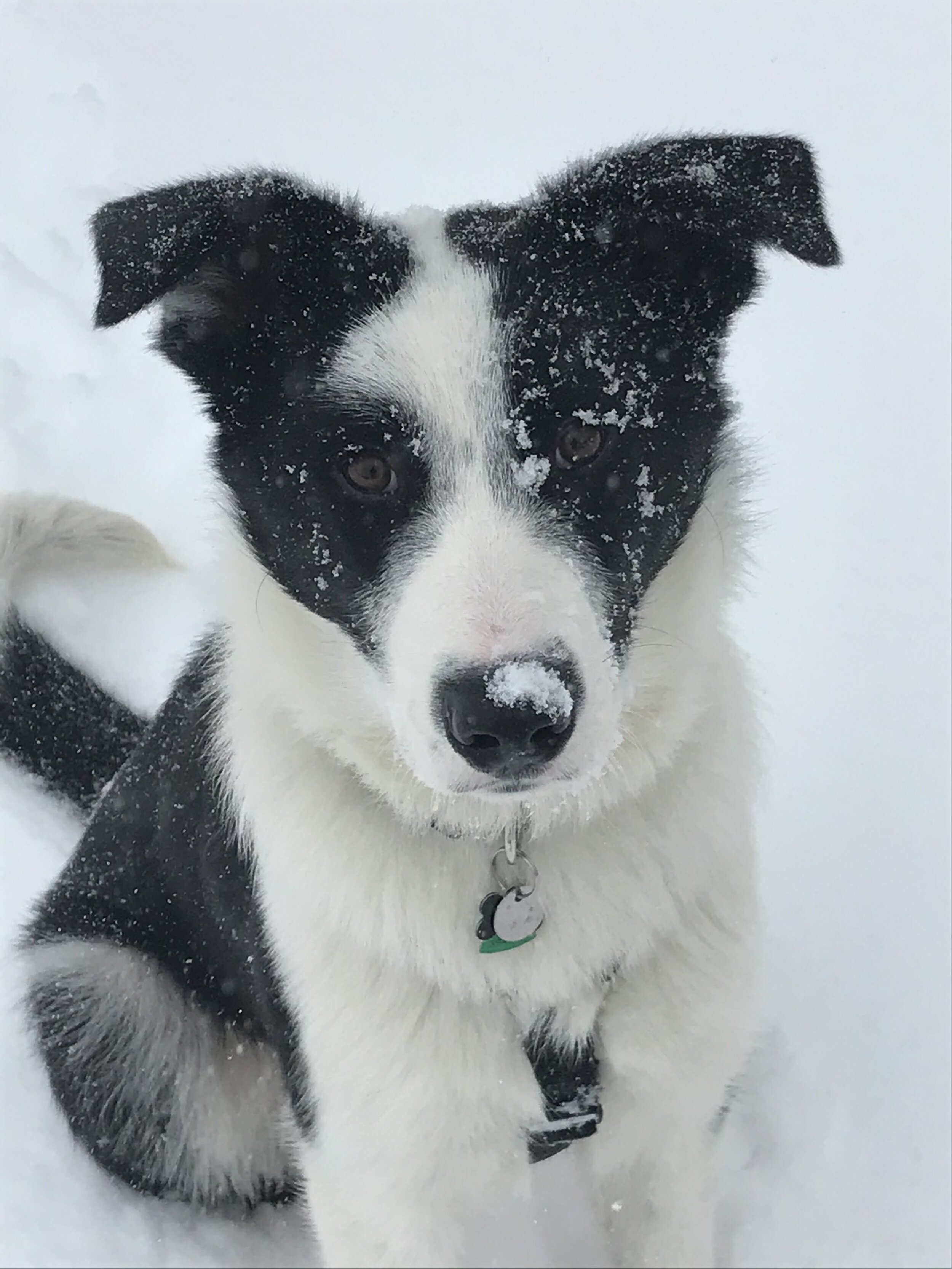
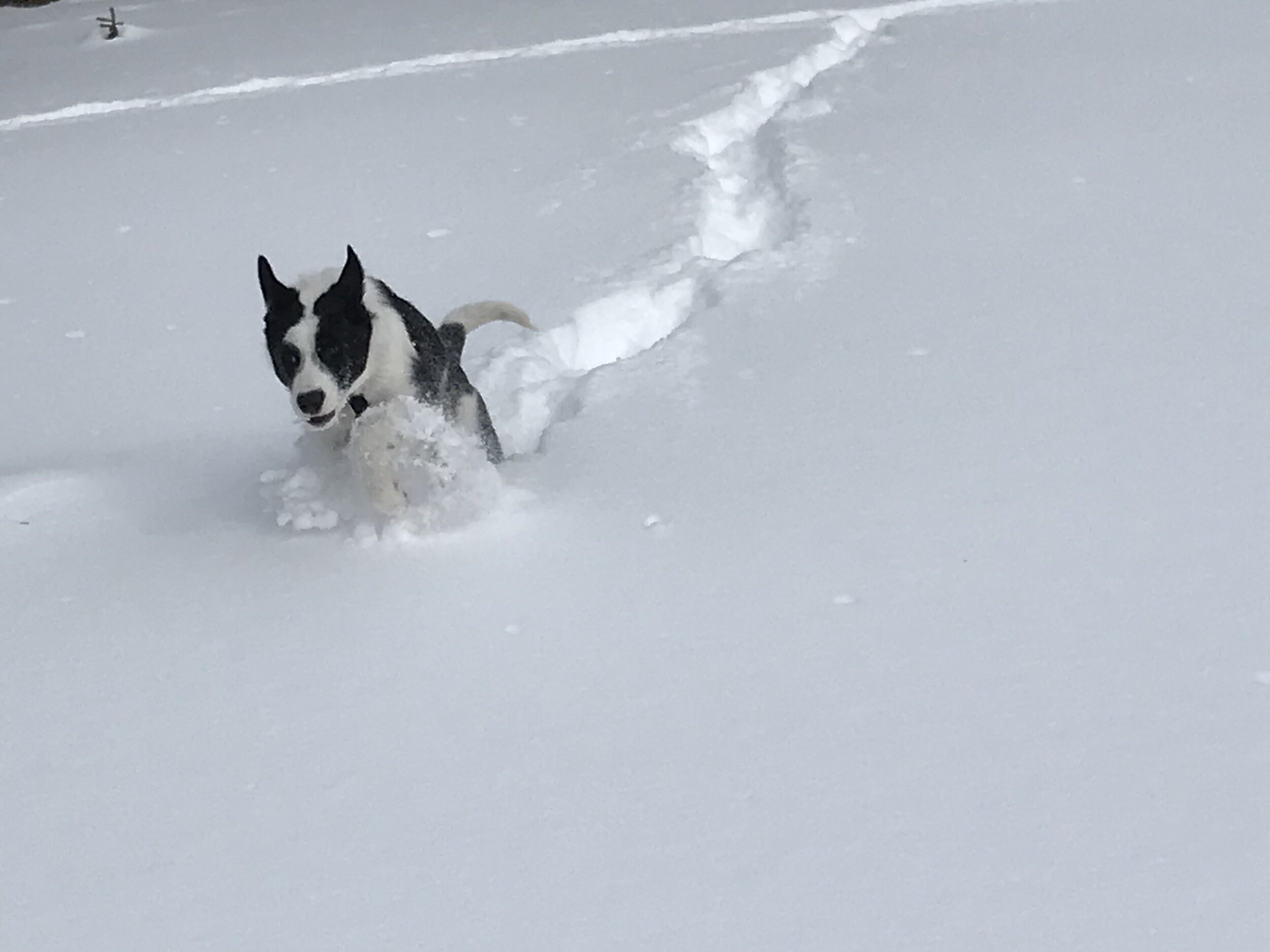
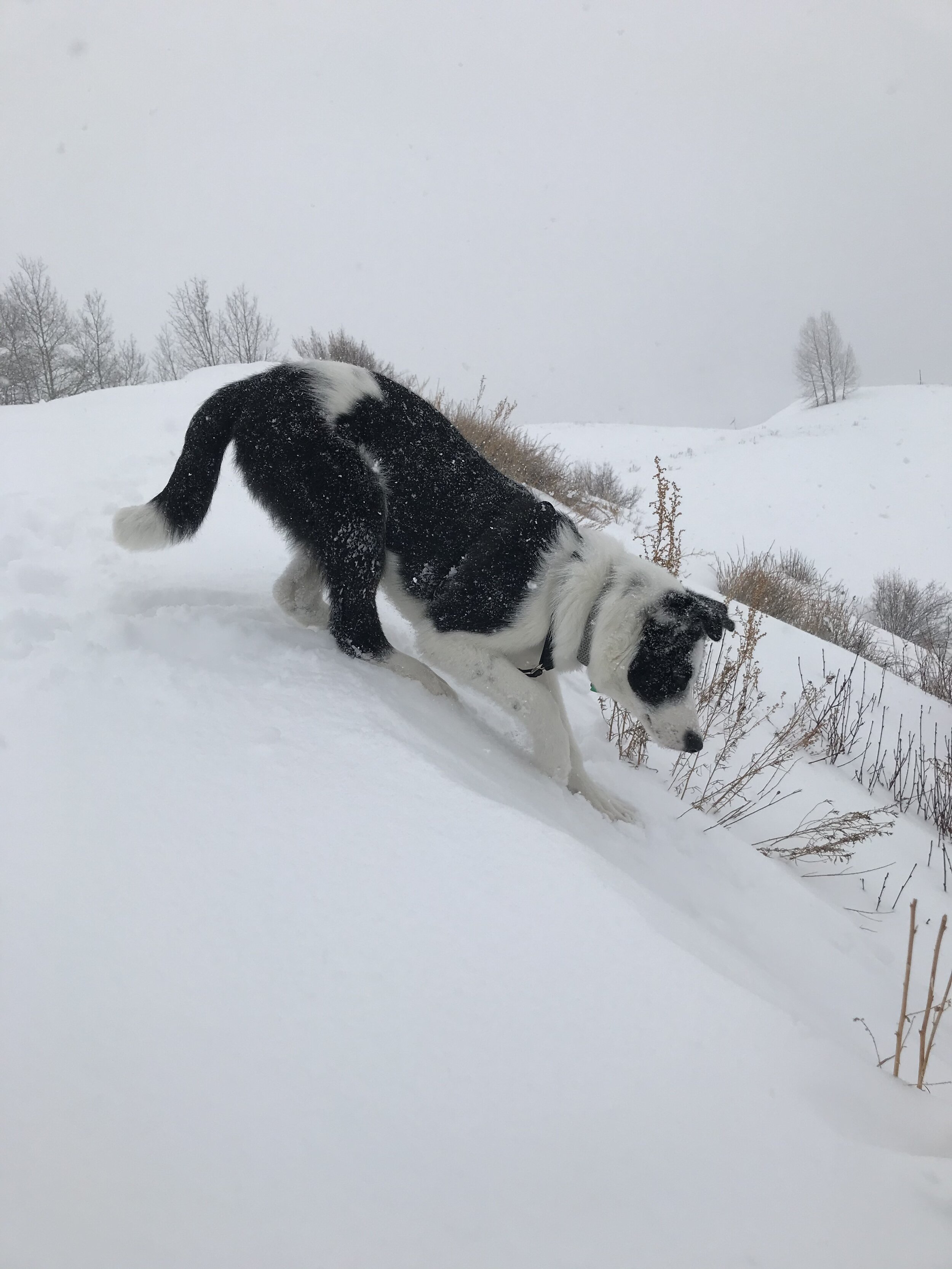
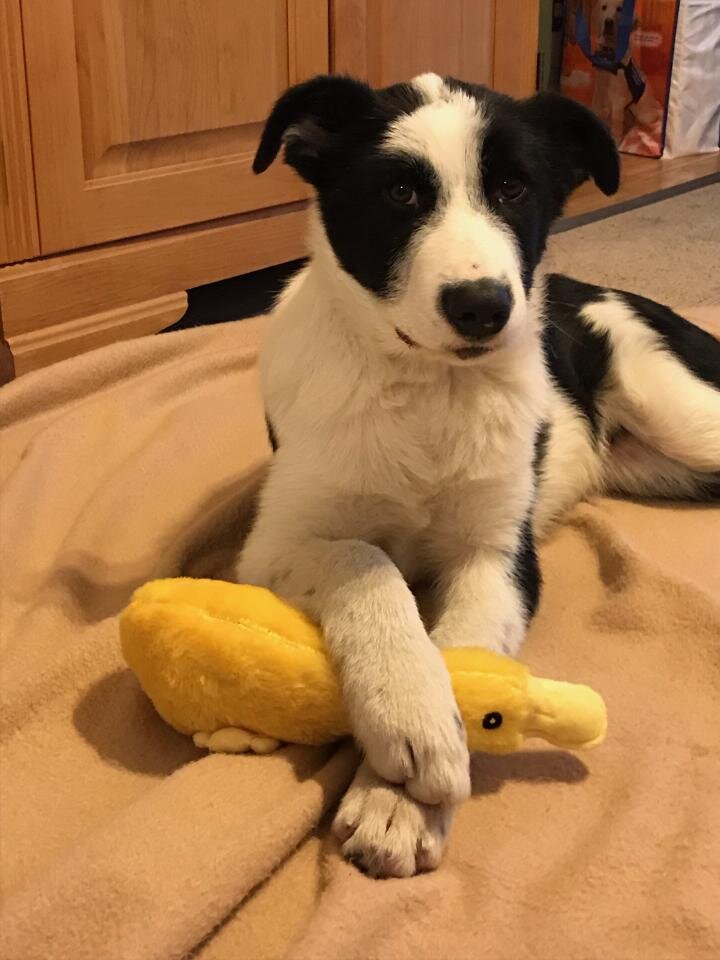
Above: Meet Mu, CSAS’ new field assistant. Mu’s resume includes a great sense of smell, a passion to dig, and a willingness to break trail. His training is going well, though I never had to teach a field assistant to not eat poop before, so we are starting from square one.
